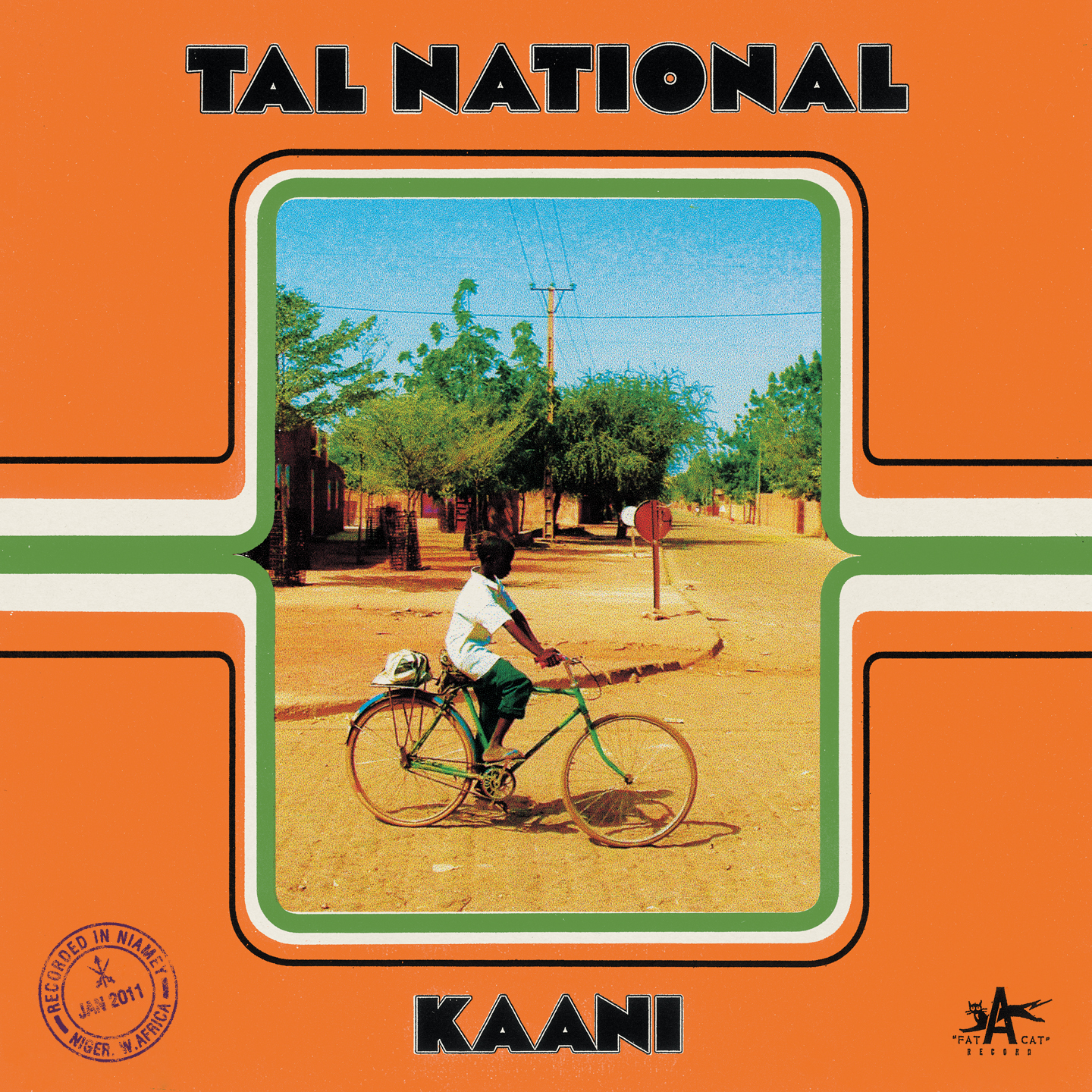A lone guitar, articulately plucked, is quickly joined by a talking drum, or Kalangu, as it is called in Hausa. A western drum set fills in the rhythm as a second guitar weaves its own riff into an already intricate mix of sounds. Suddenly, powerful vocals explode, completing the sonic foray that is Kaani, the title track of Tal National’s third studio album, and the band's first release outside of Africa.
Hailing from Niamey, Niger, Tal National is one of the west African nation's most popular groups. Guitarist Hamadal “Almeida” Moumine, a municipal judge by day, started the band in 2000, and has dazzled countless crowds in the years since. Their first album, Apotke, with its blend of traditional instrumentation and auto-tuned vocals, was locally well received. However, in a country with a highly limited music distribution system, in which band members continue to sell their albums roadside, their vibrant and distinct sound has- until now- struggled to gain much attention outside of their homeland.
This album is a fine listening experience because the band plays expertly. The nightly five-hour concerts for which they are locally famed undoubtedly helped them develop the clean complexity heard throughout the LP. Although consisting of only guitars, Kalangu, western drums, vocals, and occasionally bass, the ensemble does not lack for depth of sound. On the contrary, the songs are busy yet articulate, each instrument’s distinctive timbre shining crisply through the mix. One might easily think that the ensemble is larger than its six core members- and certainly never guess that the group has long struggled with poor access to instruments and properly equipped recording studios.
The lyrics, which are multilingual arrangements of Hausa, French, and Zarma, exemplify the diversity of Tal National, which quite consciously represents the unity of the Niger’s many ethnic groups. Among their ranks are Songhai, Fulani, Hausa, Zarma, and Tuareg. Lead man Almeida proudly claims that the group sings of peace, tolerance and the unity of the people. Their uplifting message is complemented by the energy of the vocalists, which whether solo and and relying on group call and response, is always an invigorating cuff to the chest.
Track number three, "Wongharey", with its florid lyrics and upbeat rhythm, praises the fighters of Niger's history and thanks God that the country is at peace today. Disparate governmental representation of ethnic groups contributed to the string of coups and instability that have mired Niger since its independence from France in 1960, while civil strife decimated economic structures as late as 2007. For Nigeriens, the democratic election of president Mahamdou Issoufou in 2011 was no small deal. For Tal National, celebrating peace, unity and tolerance in their music is celebrating the future of the nation.
Part of the success of this album stems from the efforts of sound engineer Jamie Carter, who has helped the group achieve higher quality recordings than they had previously enjoyed. The power and exuberance of the singing is a vital component of the emotional impact created by each song. Additionally, unlike their previous album, A Na Waya, which heavily featured auto-tune, Kaani relies on unaltered human voice, an unadulterated pleasure that helps the band to strike a balance between tradition and the urban, pan-West African instrumentation which sizzles in a matrix of Afrobeat, highlife and mbalax.
While the arrangements are consistently joyous and danceable, the band barely lets up throughout the album. As a result, the energy is at a nearly continuous high, with the possible exceptions of "Sarkin Fada," which has a slower tempo with vocals taking a lower tone, and "Nouvelles," which has a long gentle paring down of instruments and fade to its conclusion. While uplifting, Kaani is without climax, without a lull. True, fluency in Hausa, Zarma, or French may yield a different reaction. Yet, with a growing intercontinental audience, Tal National may need to rely more heavily on instrumentation to create changes in mood.
Overall, this is a small qualm for an album of songs that are otherwise masterfully executed and never boring. With increasing recognition outside of their homeland, where they are already celebrities and a source of local pride, will Tal National continue to develop its sound and explore new musical territory? As with all great albums, we are eager to see if their next project can best their already prodigious accomplishments. Until then, listeners will enjoy the talent displayed on Kaani again and again. It just gets better each time it’s played.









